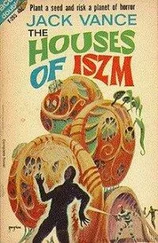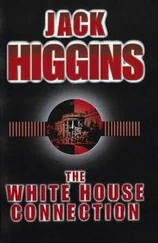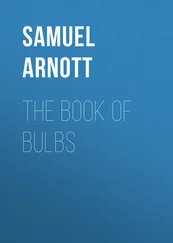‘I hope you don’t think that I’m going to go public about anything.’
‘Not at all, Sir Marius. I just feel obliged to let you know about new conditions of work within the Service.’
‘Since this Spycatcher business, Head Office really is worried about people blabbing, isn’t it?’
‘I’m afraid so.’
‘Even got an injunction on Joan Miller’s memoirs. Ridiculous.’
‘Joan Miller?’
‘Worked for Maxwell Knight during the war in Counter-Espionage. All the stuff in her book is about that time. Nothing that could threaten national security. Though some of her work was tangential to Operation Mistletoe and the Service is still very cagey about that. Especially now, I suppose. I mean, that’s why I’ve been called back, isn’t it?’
‘I’m sorry?’
‘Prisoner Number Seven. Hess.’
‘Oh. Yes.’
‘Hanged himself in the summerhouse in the Spandau garden. Not easy if you’re over ninety.’
‘Quite. We’ve always known his death would be a political event so we’ve had a procedure laid down and ready for this, agreed to by all the Four Powers. The autopsy and investigation have been our responsibility.’
‘He was always our prisoner. First and foremost.’
‘Yes. And that is why we’ve called you in, Sir Marius. You’re the only one left who has known the case from the beginning.’
‘So the Service wants my post-mortem?’
‘Yes. And your take in terms of information strategy, naturally.’
‘Don’t expect much clarity.’
‘Nuance, that’s what we’re after.’
‘Because this one was dark right from the start. A perfect example of the craft. Nobody knew the whole story and nobody ever will. So it can be told again and again. Controlled confusion, that’s the key to negritude.’
‘Negritude?’
‘Sorry, an old section nickname. You know, the Black Game. Black propaganda. What the Americans insist on calling psychological warfare. As if there was anything scientific about it. The Yanks, well, they were always a bit heavy-handed. Never learnt how to play it as a game.’
‘And the Soviets?’
‘Brutal but playful. Like a cat with a mouse. Old liars, like us. And, like us, probably better at import than export. What are they up to with this one?’
‘It’s rather strange. They appear to have shifted their attitude just months before Hess hanged himself. In April, Der Spiegel ran a story that Gorbachev was considering agreeing to Hess being released. In June, a similar statement was issued to the German-language service of Radio Moscow.’
‘That’s odd.’
‘Yes.’
‘They’ve always exercised their veto before. If it hadn’t been for the Russians the old Nazi would have been out years ago.’
‘The obvious analysis is that this is all part of the glasnost policy.’
‘ Glasnost ,’ he sneered. ‘If you ask me glasnost is the slyest form of disinformation we’ve ever seen. Oh yes. What we said in the past is a lie but this, this is the truth. It has this confessional, redemptive trick to it. What about our side? What have we been up to?’
‘There we might have a little problem.’
‘Really?’
‘Just a matter of detail.’
‘The autopsy?’
‘No, not that. The son has commissioned another post-mortem but I don’t think that should cause us any problems. No, there was a note.’
‘He left a note?’
‘Yes.’
‘A nearly blind ninety-three-year-old left a suicide note?’
‘Yes.’
‘Christ.’
‘We’re sure it can be verified.’
‘Sounds as if someone’s been a little over-zealous. What does it look like?’
‘It’s with our senior document examiner. We’ll get it to you as soon as possible.’
‘Good. And I’d like to run it past one of my old team, if that’s permitted.’
‘Eric Judd?’
Sir Marius Trevelyan nodded.
‘Yes. He should give it the old once-over.’
He spent the afternoon back in Archive, once more trying to make some sense out of the affair. Over the years it had continued to confuse him, even as he had been part of the confusion himself. Now the old bugger was dead. Prisoner Number Seven had a long history of attempted suicide. In June 1941, soon after his capture, he had thrown himself down the stairs of the country house where he was being held for interrogation. The banisters had broken his fall and he had merely fractured a femur. In February 1945, he had stabbed himself in the chest with a stolen bread-knife and later gone on hunger strike. In 1959, in Spandau prison, he had used the jagged edge of the broken lens of his spectacles to open a vein in his wrist; in 1977, he had severed an artery with a knife. But on none of these occasions had he ever left any sort of note.
And the contents of the missive were perplexing. Addressed to ‘all my loved ones’, most of the thing was taken up with an apology to his former secretary for having to act as if he didn’t know her. During his examination by psychiatrists at Nuremberg, he had been confronted with Hildegard Fath, who had worked for many years as his personal assistant, and he had claimed that he had never seen her before. She had been reduced to tears, but this was back in 1945, over forty years ago.
The note brought everything back to the question of the man’s sanity. Marius Trevelyan once more attempted to thread his way through the maze of delirium and forgetfulness. The Soviet doctors had always maintained that Hess had been faking his loss of memory. The British had been more ambivalent, concluding that he had ‘suggested an amnesia for so long he partly believes in it’. Hess protested that he had been subjected to hypnosis and psychoactive drugs. American Intelligence had been intrigued by the possibilities in the case for advancements in mind-control. A psychiatrist on their panel later developed brainwashing techniques for the CIA.
Trevelyan began to make notes on a series of index cards, a one-line subject heading on one side, details on the other. After some time he shuffled through this small pack of cards and turned up a blank one marked ‘American’. He buzzed for a desk officer and called up all the files pertaining to US Intelligence regarding Prisoner Number Seven. He had remembered that there had been an American commandant at Spandau in the 1970s who had got into trouble when it was discovered that he had been working on a book with Hess. He made a request for this file also, along with any relevant documentation.
By the end of the day they had got the suicide note to him. It had been written on the reverse side of a letter Hess had received from his daughter-in-law, dated a month before his death. A nice touch, thought Trevelyan, if it indeed was what Eric Judd would call a ‘moody one’. Yes, Eric might be able to spot something, he concluded, as he carefully replaced it in the evidence bag.
‘But what do you think is in there?’ she asks, a gloved hand still holding him by the hair.
‘Mistress?’
He feels the pressure sores as his bony knees dig into the floor and a tremor of arthritis in his right hip. His old and withered flesh is cramped and weary, trembling. She places her other hand between her thighs, lets out a little burlesque purr.
‘People often wonder what I’ve got down here,’ she says. ‘There’s uncertainty. You like that, don’t you?’
‘Oh yes, Mistress.’
She was right. That was what he liked. Subterfuge.
‘Yes. Well, it doesn’t have to be one thing or the other, does it?’
‘No, no it doesn’t, Mistress.’
‘It could be both.’
‘Yes.’
‘In fact it is both, isn’t it?’
‘What?’
‘Until you look at it, it’s both, isn’t it?’
Читать дальше











